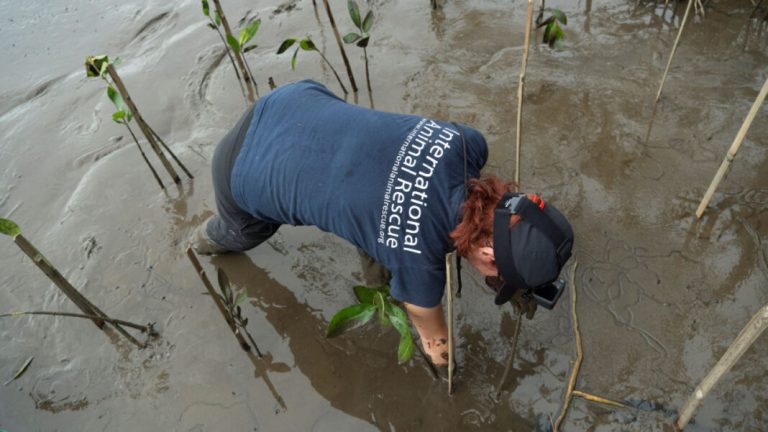Mangroves are unique ecosystems found at the interface of land and sea, serving as ‘superheroes’ for coastal environments. They play a pivotal role in the wellbeing and food security of coastal communities worldwide, supporting rich biodiversity and providing essential nursery habitats for fish and crustaceans. Furthermore, mangroves act as natural barriers against storm surges, tsunamis, rising sea levels, saltwater intrusion, and coastal erosion. Their soils are also highly effective carbon sinks, sequestering significant amounts of carbon, which is crucial for mitigating climate change.
Despite their importance, mangroves are disappearing at an alarming rate—three to five times faster than global forest losses. Current estimates reveal that mangrove coverage has been halved over the past 40 years. UNESCO reports that certain countries experienced losses exceeding 40% of their mangroves between 1980 and 2005.
Gavin Bruce, CEO of the conservation charity International Animal Rescue (IAR), emphasised the urgent need for action. “Mangroves are in danger, with more than three-quarters of the world’s mangroves currently under threat, along with all the aquatic and terrestrial organisms that depend on them,” he stated. IAR is actively working with coastal communities to restore mangroves, having planted 15,600 seedlings from 33 genera across 30 hectares in the past year alone.
The success of IAR’s initiative can be attributed to the passion and engagement of local communities, resulting in a remarkable seedling survival rate. These restoration efforts not only revive mangrove ecosystems but also underscore the essential role mangroves play in protecting coastal areas and enhancing biodiversity.
Bruce further underscored the pressing need for increased protection and restoration of mangrove forests. “We are witnessing catastrophic weather changes, with severe flooding becoming increasingly common. Mangroves are critical in the fight against climate change, stabilising sediments and reducing wave energy to protect coastal farming communities. The consequences of mangrove loss are dire, leading to accelerated climate change due to the release of stored carbon, failed crops from seawater intrusion, and heightened coastal erosion and flooding.”
As the world marks the International Day for the Conservation of the Mangrove Ecosystem, it is imperative to change the narrative surrounding these invaluable resources. Recognising the irreplaceable value of mangroves and taking decisive action to conserve them is essential before it is too late.

